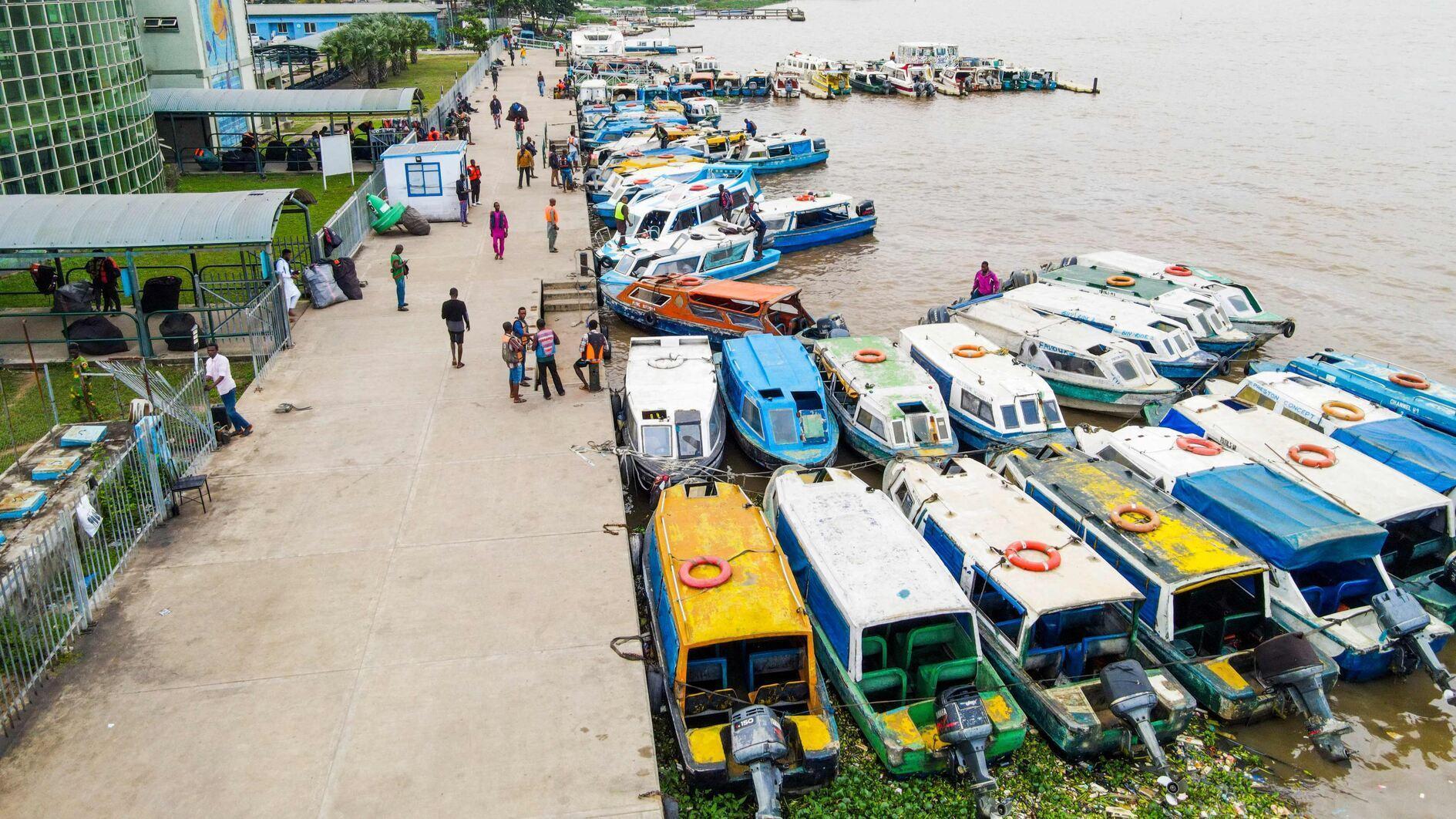
Nigerian saleswoman Ivy Junaid says her daily half-an-hour commute from mainland Lagos to the city's island business district has changed her life.
What was once often a three-hour nightmare drive to work with a pre-dawn start and gnarly traffic has become a quick sprint skimming across the waters of Lagos lagoon by boat.
"You can actually get out of bed when you need to. You have breakfast at home, strut in here, strut into the boat and 30 minutes across the water," the telecoms employee said.
"It's really a life-saving situation for most of us."
Flanked by lagoon waters and the Atlantic Ocean, Nigeria's economic capital Lagos has long used its waterways as an alternative to the megacity's chaotic roads.
But soon more commuters like Junaid in the city of 20 million could be traveling by boat under plans to massively expand waterway transport and multiply passenger numbers.
With an around 410-million-euro ($455-million) investment from France's AFD development agency and EU institutions, the program, known as Omi Eko or Lagos Water in Yoruba language, also aims to tackle carbon emissions with a fleet of electric-powered ferries.
Whereas most Lagosians live on the mainland part of the city, a lot of offices and workplaces are on the islands area, Victoria Island, Ikoyi, Lagos Island and Lekki, linked by a series of bridges.
That means road traffic to the islands in the morning and back to the mainland after work can be heavy going. Even a small accident on a bridge or repair work can cause miles of tailback.
Bad roads and flooding during the rainy season coupled with the chaotic fleets of informal "Danfo" minibuses that pack the roads compound the difficulties.
The state government already has ambitious plans for more integrated public transport as Lagos barrels towards becoming the world's most populated city by the end of the century.
Intracity trainlines and dedicated bus lanes fed by smaller minibus routes aim to reduce traffic.
With water on all sides, however, boat transport is an obvious solution, and one the project's funders believe could be replicated in Cameroon and Ivory Coast.
"We have viewed the waterways as the potential jewel in the crown to ensure we can unlock the traffic we see on the roads," General Manager of Lagos State Waterways Authority, Oluwadamilola Emmanuel, told AFP.
Transport expert Samuel Odewumi at Lagos State University says the current Lagos administration will have to ensure the new development is sustainable.
"There are no cons, there are pros and pros for Lagos state with water transport," he said. "But over the years it has been in fits and starts."
Other problems such as dredging, fuel prices, jetty and boat quality and safety will need to be tackled, he said.
Waterways authority chief Emmanuel hopes the project will increase boat passengers from around 2 percent of total commuters now to around 10 percent.
"We will be moving about 10 million people on a monthly basis," he said.